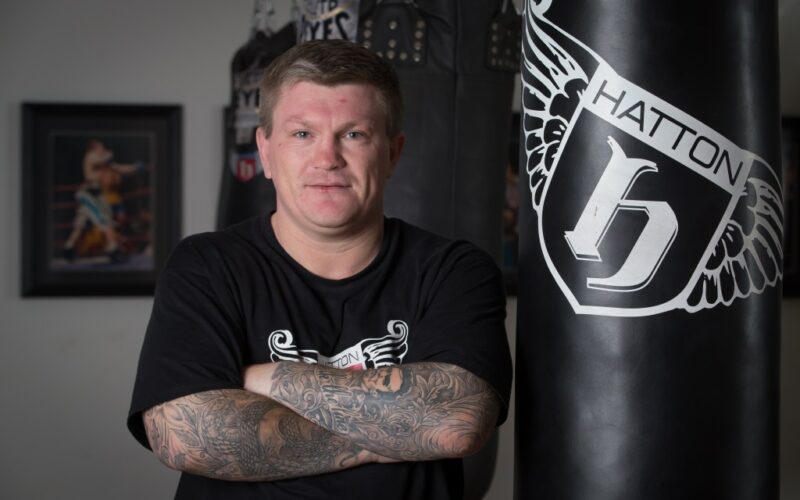Ricky Hatton, the hearty British boxer who rose to stardom and fought Floyd Mayweather and Manny Pacquiao, died Sunday. He was 46.
Hatton was found dead at his home in Manchester, authorities said. Police said his death was not considered suspicious.
“A true champion, an indomitable spirit, and a legend of the sport,” the World Boxing Association wrote on social media. “Your legacy will live on in every fight and in the hearts of boxing fans around the world.”
Hatton began his boxing career 43-0, winning title belts at two weight classes during the early 2000s. But it was his style not his record that endeared him to fans on both sides of the Atlantic. Hatton prided himself on “all-action” fights, constantly moving forward with a barrage of punches.
“You’ll never be bored out of your skull watching a Ricky Hatton fight,” he told ESPN in 2007. “I have a very high work rate, I never take a backward step. I take on all comers.”
Hatton was also beloved for staying true to his working class roots. Even as he became the most famous British boxer in the world, he trained at a sparse gym above a carpet factory. When he walked out for his fight against Mayweather, his robe included an ad for his dad’s carpet shop.
After suffering his first career defeat to Mayweather, Hatton got another primetime bout against Pacquiao in 2009 but was knocked out in the second round.
Following the Pacquiao fight, Hatton retired from boxing as his life spiraled into a mix of drug and alcohol abuse. He also opened up about his mental health struggles, which are relatively common among former boxers.
“As fighters, we tell ourselves we’re strong — we train, we sweat, we take hits, we get up. But sometimes the hardest fight happens in silence, in the mind,” another British ex-champion, Amir Khan, wrote on social media Sunday. “Mental health isn’t weakness. It’s part of being human. And we must talk about it. We must reach out. We must lean on each other.”

But Hatton put his life back together by 2012, launched an inspiring comeback and returning to the ring. Though he lost to Vyacheslav Senchenko in the ninth round, Hatton considered it a victory to simply fight again.
“It’s been well documented what’s happened to me since the last time I’ve been in a boxing ring,” he told the BBC ahead of the fight. “It’s about more than money, this comeback. People say nice things about me but they don’t know what’s been going on in between my ears.”
After finally hanging up the gloves, Hatton worked as a trainer and promoter. His most notable success was coaching Zhanat Zhakiyanov to a world bantamweight title in 2017.

Recently, Hatton announced plans for another comeback with an exhibition fight in Dubai in December. Days before his death, he shared videos of himself training on Instagram.
“Rip to the legend Ricky Hatton,” former heavyweight champ Tyson Fury wrote on social media. “There will only ever be 1 Ricky Hatton.”
With News Wire Services








